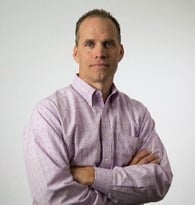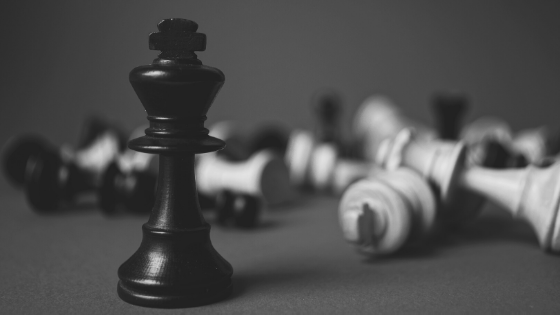While many of our pandemic responses have focused appropriately on meeting real-time needs of internal and external stakeholders, COVID-19 has raised foundational questions about our forward ability to create both stability and responsiveness over the long term. Both as a "coronavirus organizational strategy" and as a future imperative, resilience at the organizational level has become requisite. In our upcoming webinar, TLD Group faculty presenter, Dr. Larry McEvoy, emergency physician, founder of Epidemic Leadership, and past health system CEO, takes a look at the virus as both warning and teacher. The webinar will forward a practical framework for resilience as a strategic asset, not merely a personal or professional one. The webinar will review the key mindset, leadership, and design shifts leaders and organizations can make to create organizational capacity for both stability and responsiveness during times of unpredictability and disruption.
Key Learnings from COVID-19:
Time to Get Strategic About Resilience
Presenter: Larry McEvoy, MD
Date: May 27, 2020
Q & A with Dr. McEvoy:
- 2/3 of my client organizations want to simply wait out the pandemic reopen and return to exactly what they were doing before, only 1/2 are willing to re-invent, and re-engineer. What are your thoughts?
The human tendency toward present bias and stability naturally take us "back" to what we knew, unless it's something we must urgently run from or something powerfully attractive to move to. Even with "things we should run from," we often find comfort with the devil we know. As far as working with clients, I find it helpful to qualify clients who are really willing to build the future, rather than just talk about it. For those who are wanting to "wait it out and return to what was," I suspect all manner of data and convincing will be low yield. Perhaps helping them access a different way of experiencing the untenable present and the potential future might be helpful. Stakeholder interviews/stories with people who have been living in the imbalance and unsustainable "normal" may help them understand that the "normal" they're hoping to return to was more a mirage than a true foundation. I think there's also some value in creating an interactive experience about the deep value and attraction of a more resilience-based future. I've seen people create very positive effect and movement by designing interactions between very different stakeholders to break their respective echo chambers and create positive social momentum, but that "bias shattering" has to be continually supported and linked to tangible, perceptible action and results. There's a barrier to getting there, but the reward is the release of a lot of painful reality that they currently accept as "just the way things go." - I'm interested to hear your thoughts on how the 'education' system might change to respond to need for 'resilience'.
While we have wonderful research to support the idea that learning, exploration, and experiential learning more effectively anchor insights energize motivation, and create multiple paths to performance, too many of our educational efforts (broadly defined, from primary school to executive education) are still focused on "knowing" over "learning," on "cognition" over "experience," and on mechanized linear approaches to producing "stuff" over biological principles of relatedness. In an interconnected world which we hope will create abundant health and a combination of stability and responsiveness at all levels, it's time to embrace biology, with its emphasis on relatedness and interdependence as the basis of systems thinking underlying the path to the future. Resilience happens to be a much-needed property, widely recognized right now, but essentially, it's a derivative property of healthy systems--and thus a handy entrypoint for education to invite people into deeper learning applicable to our most complex challenges. - When will someone tackle the elephant in the room... We are an unhealthy society driven by corporate profit (poor food / marketing of pharma to manage sickness not promote health). People 50 years ago did not seem to have the level of lifestyle diseases we see now. How do we tackle this?
Hear, hear. We work a lot on quality, safety, and population health in health care, with two elephants in the room, I would say. One elephant is that the design of our society creates unhealth (and its subsequent staggering direct and indirect costs) at a scale and pace beyond what we can ever address. The second elephant is that our leadership models are not yet capable of creating wide scale awareness and capacity to shift how we shape our societal infrastructure and processes toward "wealth from health". We know the formula for life and health from a nutritional, exercise, social, relational, bad-habits, and environmental perspective. I think we tackle these elephants by creating awareness of the overwhelming "anti-health" effects of our system design and by introducing a new model of leadership that is far less heroic and far-more participatory and anchored in network intelligence rather than in individual expertise and social power. For both of those, we need powerful experiential learning crucibles where people can "see it, touch it, believe it." Briefly, more time in the sources of health than in board rooms looking at spreadsheets and powerpoints. - Where do you think we should launch this resilience virus in our society to cultivate it as the new paradigm?
Ideally? Where social power, money, and openness intersect with key elements that drive health--education, politics, infrastructure, community, religion. Practically--anywhere, any time. But like SARS-Cov-2, if you start small, you've got to be thinking about creating the conditions for rapid uptake and diffusion. Where you start isn't as important as why you start and how you're thinking about positive, exponential design. It's time to start mapping positive epidemics, which is different than rolling out an initiative. - Were you influenced by George Land- systems scientist?
No, but I will check him out. I'm a big Albert Schweitzer, Aldo Leopold, Albert Einstein, Wes Jackson (Land Institute), Don Berwick, Meg Wheatley and Martin Luther King fan. I also like what Glenda Eoyang is doing at the Human Systems Dynamics Institute, and what Otto Scharmer and crew are doing via their U-learning model is pretty powerful. Much of my learning has come from the biological wonders that are the human body and the land I grew up on. Biological systems create a transcendance that somehow merges the practical "get-er-done" needs of survival with a sense of beauty that invites an ethic deeper than mere transactional efficacy. - Capitalism depends on free markets and growth being the be all and end all; climate change and pandemics require turning off inappropriate growth that kill people and the land. How does resilience apply?
Again, I find insights in biology, where capitalism, in the sense of free exchanges between markets, freedom of movement, and abundant experimentation, exists in abundance, but not in unbridled context. Biology, like all systemic constructs, embodies freedom and limits, opportunity and restriction. Growth is an overwhelming foundation of biology--so is its limitation (unlimited growth results in crashes of populations and cancer in organisms). Resilience is both the target and the result which invites us to think about how we design our economic, political, educational, and infrastructural systems. By virtue of the phenomena we're seeing--population density, environmental degradation, political tribalism, wealth-health gaps, a resilient human society or organization requires that we rethink the systems that got us to this point. We're at an inflection point, and we must evolve our thinking, our relating, our processes, and our infrastructure, probably in that order. As I tell my children, we get to choose. Defending our choices will be less constructive than linking them to health at multiple levels in both intent and frank evaluation. - What are your thoughts on the cause/solutions for the reports of healthcare personnel including Physicians, Nurses etc. committing suicide, specifically in COVID-19 times?
Beyond their own individual stories, which are always worthwhile, unique, and poignant, they point to an underlying reality: these sentinel events define a crashing and collapsing system. I am a physician and an optimist, and a resuscitative physician to boot, so I believe we can create abundant future realities. But waiting makes no sense. We know enough now to move now. Best to learn well, move early, and really commit ourselves to design societal health and healthy organizations. Leadership, again interdependently and not coercively or heroically defined, becomes pivotal, as does influence over resource decisions. In healthcare, it's time for Boards to begin governing by these principles if we're going to move the needle. Quality and safety dashboards and financial monitoring, necessary as they are, aren't sufficient. - How will this conversation be continued? How might I get involved?
I'm aggregating small learning networks, linked across each other, to create deep learning, collegial cross-pollination, and application to participants' practical work in conventional and entrepreneurial settings. Find me and we can talk about leveraging resilience as a path to systemic health across topics (health care, energy, community design, food, transportation, etc) - Is there a call to action here?
Yes, and it's two levels. First, decide whether you're willing to stop messing around, whether you're ready personally to make resilient design grounded in an ethic of health central to how you live your life and define your professional efforts. Practically, let's talk about helping your organization or your clients create a practical map to resilient function. Everyone wants that--the ability to function with stability and responsiveness in our current duress and chaos. The shifts will come as they make the practical transition.
For more TLD Group resources for navigating the challenging waters created by the COVID-19 pandemic visit the
Crisis Leadership Support Center
 Dr. Larry McEvoy, MD, FACEP
Dr. Larry McEvoy, MD, FACEP
Larry McEvoy, MD, a seasoned health care executive and experienced emergency physician, has the unique capacity to integrate different strategic and professional perspectives through leadership, facilitation, coaching and presentation. Particularly focused on the shared work between executives, clinicians, and clinical leaders, Larry’s experience as both a CEO and a clinician deepens his skill in facilitating dynamic shifts in mindset, culture and performance at the individual, group, and system level. Whether he is working as a titular leader, consultant, facilitator or storyteller, Larry is particularly effective at creating strategic alignment, inclusive leadership and energetic collaboration.
Larry’s mission is to restore the energy, vitality, and sustainability to leaders, the people they lead, and the organizations we create. A life-long horseman and outdoorsman, seasoned executive, “cultural innovator,” and experienced clinician, Larry’s diverse background shapes his unique perspectives and renders him an inspiring speaker, facilitator, and leader.
From 2008 to May 2012, Larry served as the CEO of Memorial Health System in Colorado Springs, CO, facilitating a $100 million turnaround, the emergence of a culture of collaboration and commitment, and Memorial’s transformation from an at-risk and unfunded municipal hospital to the threshold of its merger with the University of Colorado Health system. Prior to that he was a senior executive and emergency physician at the Billings Clinic in Billings, MT, currently rated number one in patient safety by Consumer Reports.



